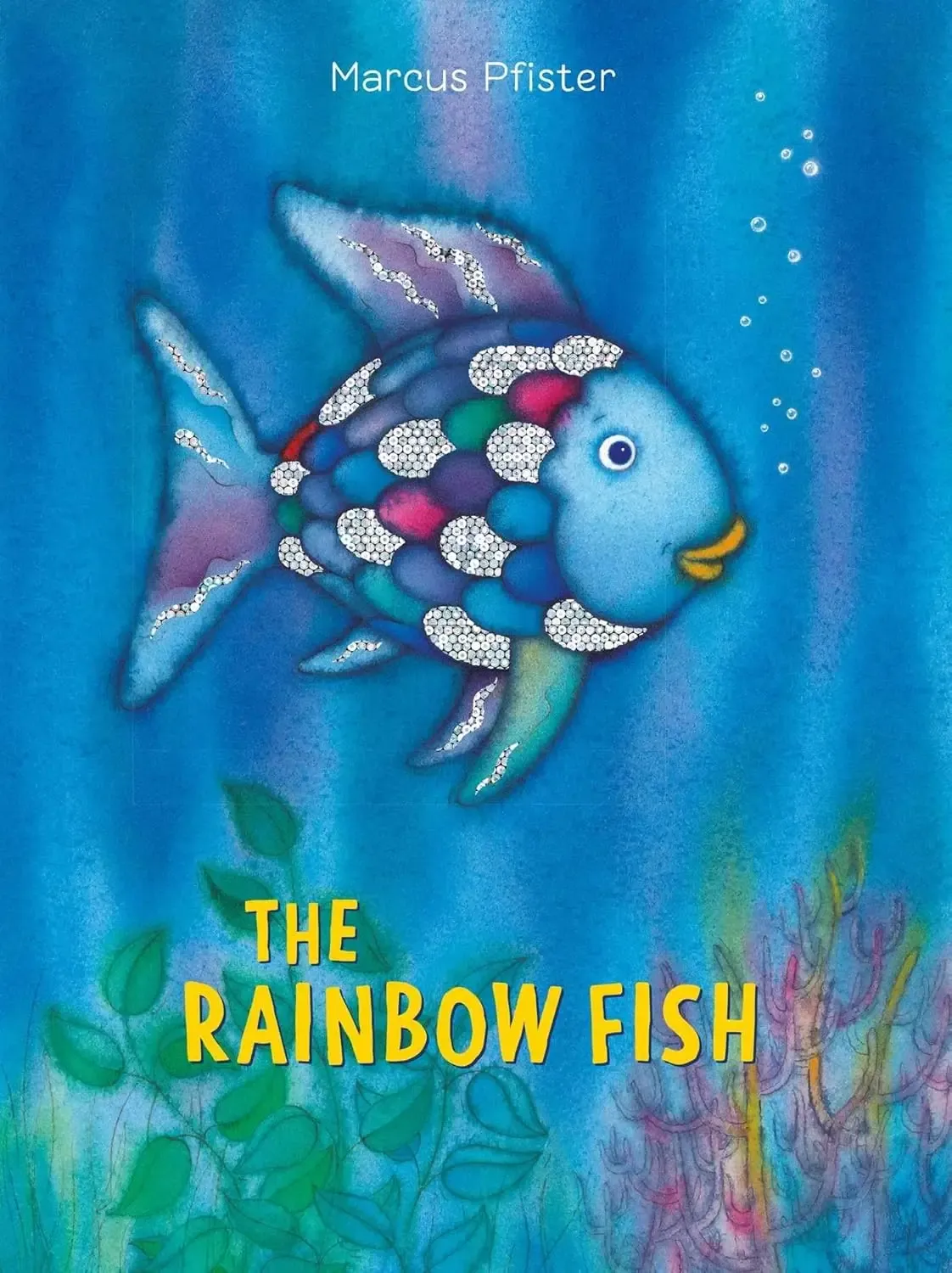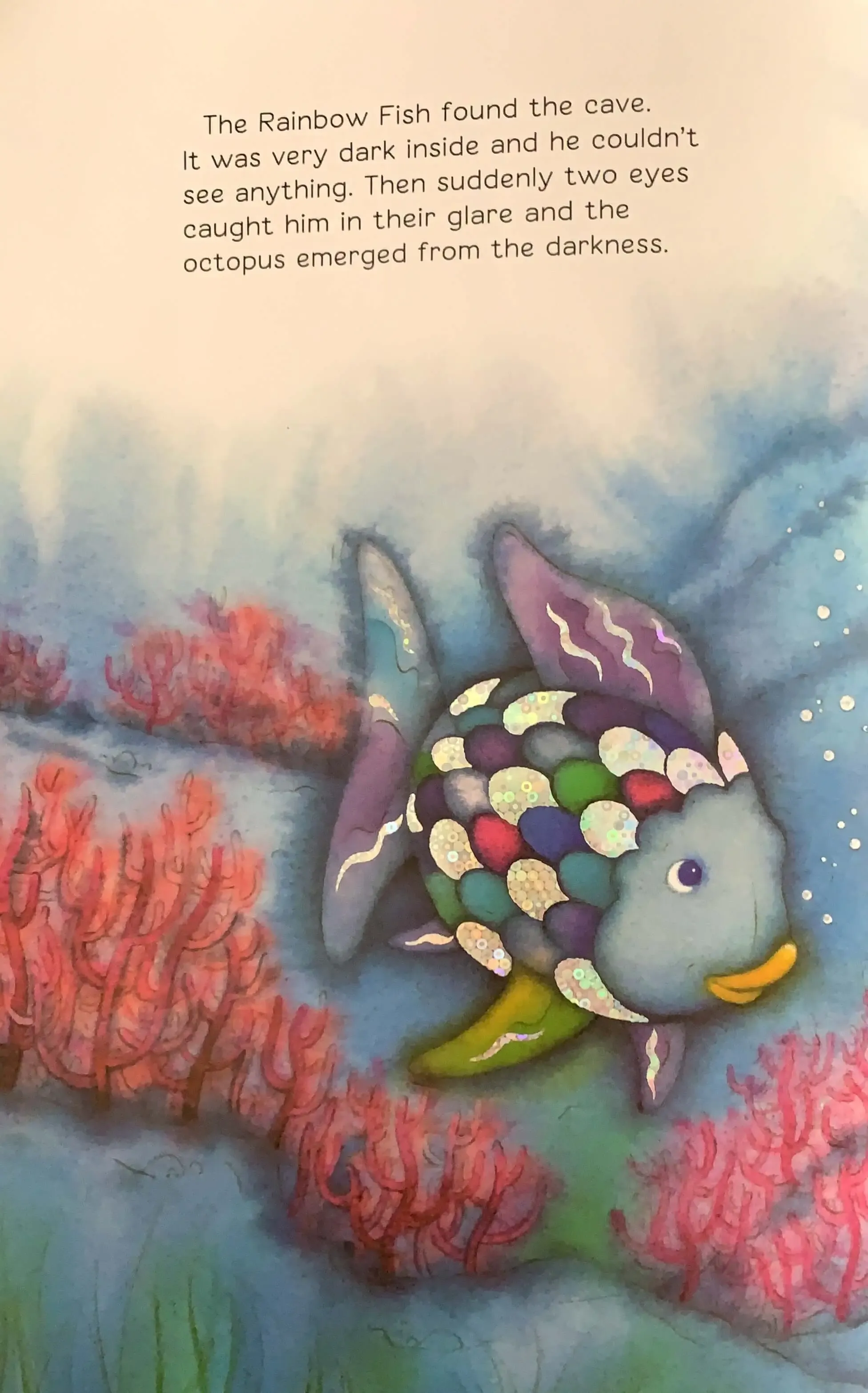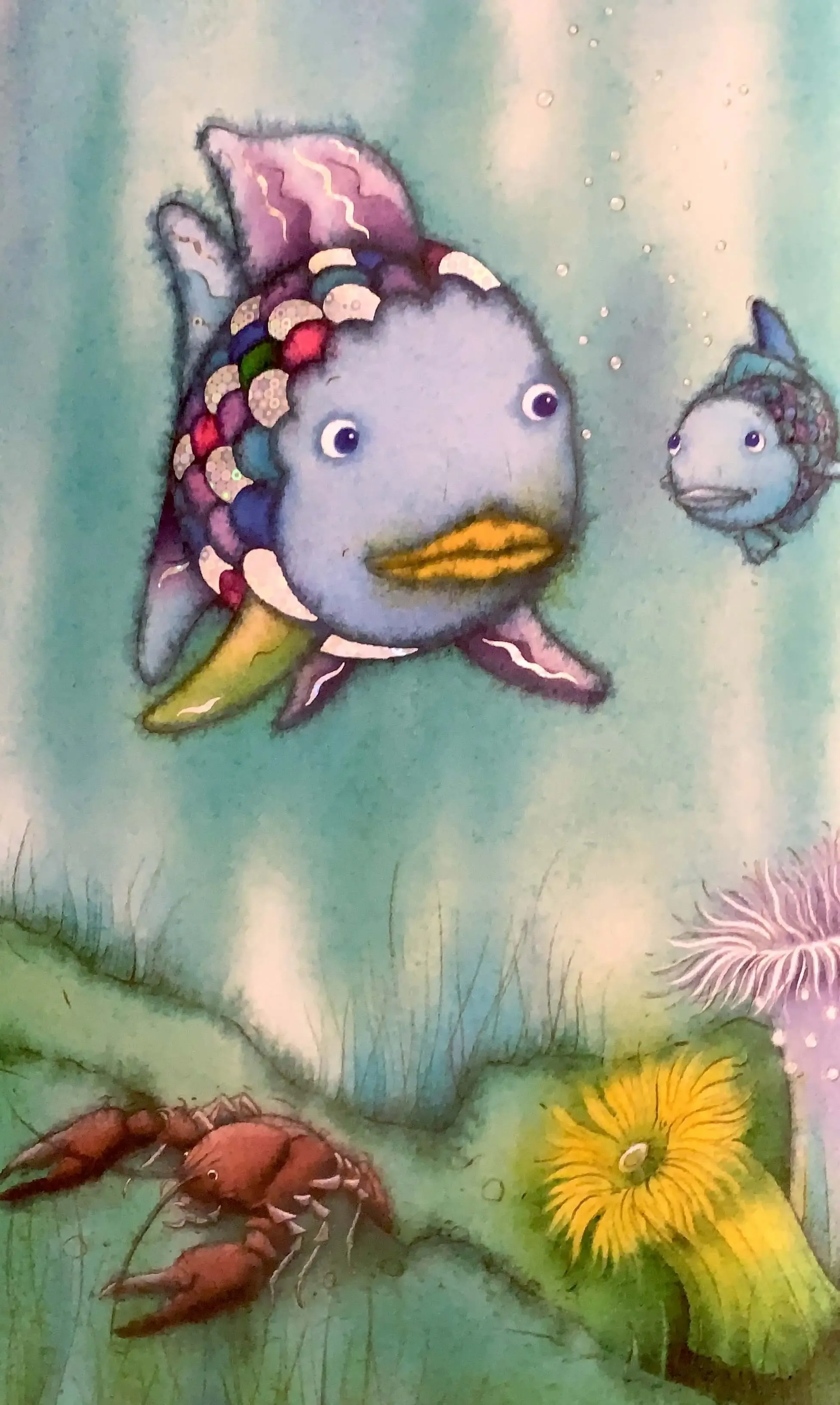As a child, The Rainbow Fish was one of the books that stood out on my bookshelf. I remember the way the shiny scales on the cover would catch the light, always making me curious to pull it down and dive into its vibrant pages. The iridescent fish, with its shimmering silver scales, was mesmerizing, so unlike any other character in the picture books I had at the time. It’s funny how something as simple as a holographic cover could make me feel like I had something special. And in many ways, this story felt special too.
The first time I opened the book, I remember being completely taken with the deep, dreamy blues and purples of the ocean world Marcus Pfister had created. The artwork is what drew me in, but the story is what stayed with me. The Rainbow Fish is not just a tale about a beautiful fish, it’s about vanity, selfishness, and ultimately, the fulfillment that comes from giving. At the beginning of the story, Rainbow Fish is proud of his beauty, but his refusal to share his precious scales leaves him isolated. As a kid, I didn’t realize the depth of the message right away, but I remember feeling bad for Rainbow Fish. Sure, he was beautiful, but was that worth being so lonely?
I distinctly remember flipping through the pages, wide-eyed as the wise octopus told Rainbow Fish to give away his prized scales. “Give them away?” I thought. It seemed like such a strange idea. But after he gives away just one, the fish is hit with a peculiar feeling, a warm glow that comes with making others happy. It’s such a simple, powerful moment, and I could feel it even as a kid, there’s something magical about realizing that generosity makes you feel richer, not poorer.
Looking back, I see how The Rainbow Fish teaches kids about the joys of sharing and building community in a way that’s easy for them to understand. For me, it was an important lesson, though I don’t think I grasped the full impact of it until I was a bit older. The illustrations, with their flowing colors and liquid-like watercolor style, helped deliver that message without needing to say too much. The visuals transported me to this mystical underwater world where everything felt calm yet full of emotion, a mix of wonder and sadness as Rainbow Fish figured out what it really meant to be happy.
Even now, when I flip through the pages, I’m struck by how poignant this simple story is. Pfister’s ability to blend art and storytelling creates a subtle but profound emotional landscape, one that doesn’t shy away from the tough lessons kids need to learn. It’s not just about sharing toys, it’s about understanding that real joy comes from connection. For children who may not have siblings or don’t yet know the concept of sharing on a larger scale, The Rainbow Fish is a wonderful way to introduce them to the idea that our relationships and acts of kindness are more valuable than material things.
As an adult, this book holds a nostalgic charm for me, taking me back to those quiet moments on the floor of my room, tracing the silver scales with my finger, and feeling like I was learning something bigger than the story in front of me. Today, when I see it in bookstores or on a child’s shelf, I can’t help but smile, knowing how deeply it resonated with me and how it continues to teach valuable lessons to each new generation. The Rainbow Fish is a timeless tale, and its message of generosity and the beauty of connection is just as important now as it was when I first caught that glimmering cover as a child.
Questions to ask while reading:
- Do you think Rainbow Fish made the right choice by keeping his scales to himself? Why or why not?
- What qualities or features contribute to Rainbow Fish's beauty?
- How do you feel about sharing with your friends? Are there things you prefer to keep for yourself?




